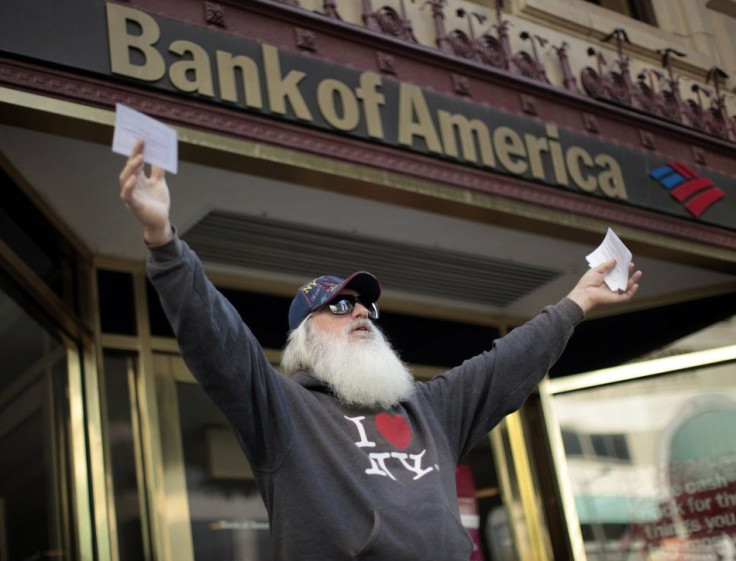Credit Unions Saw Fewer Customers Switching From Big Banks in October, Lost $400 Million in Deposits

It turns out that credit unions did not benefit so much from fed-up customers of big banks. The Credit Union National Association said in early November that their survey showed an estimated 650,000 Americans have opened new accounts at credit unions since Sept. 29, the day Bank of America (BAC) announced the $5 debit card fee that it later cancelled due to mounting pressure. However, a newly released regular monthly report shows quite a difference scenario.
After CUNA collected its regular monthly data for October, the results showed that membership for credit unions grew by 241,000 for the four weeks before "Bank Transfer Day," an initiative that called on customers to switch their accounts from the big banks to credit unions by Nov. 5. The figure is only a third of what the trade association originally projected.
During this period, credit unions ended up losing $400 million in deposits, recording total savings of $836.4 billion, compared with 836.8 billion registered in the previous month.
"About 10 to 15 percent of our deposits are checking accounts and most credit union members who have us as their primary checking account have pay directly disposited into their checking accounts," Bill Hampel, chief economist at CUNA told the International Business Times.
Hampel said deposits are always big on a Friday, since it's a payday.
"The end of September was a Friday, therefore October began with very high checking account balances," Hampel explained. "Total deposit declined in October because October ended on a Monday, which is already three months from the payday and the money already started flying out of checking accounts."
Meanwhile, "too-big-to-fail" banks saw an increase in large denomination deposits, the Federal Deposit Insurance Corporation said in its most recent quarterly banking profile.
Total deposits increased by $234.5 billion, or 2.4 percent in the third quarter. Although about two-thirds of the increase in domestic deposits consisted of balances greater than $250,000 in noninterest-bearing transaction deposits, which have temporary unlimited deposit insurance coverage through the end of 2012. This could suggest that businesses are parking their money in the banks instead of making investments, especially at a time when the economic outlook is still unclear.
Three-quarters of the increase in these large deposits occurred at the ten largest banks, including Bank of America, Citibank (C) and Wells Fargo (WFC).
The U.S. Department of Justice said in a letter made public on Nov. 22 that it is reviewing statements and actions by big banks and their trade associations to determine if they violated antitrust laws through coordinated action to raise consumer debit card fees.
Customers of big banks were roiled by how their banks were trying to recoup losses from a new federal regulation that capped debit card transaction fees. Many of these customers were reportedly planning to move their accounts to credit unions.
While October volumes may have failed to support speculation of an exodus, it has not provided a full picture. A better measure of whether customers had fled big banks for credit unions could come from CUNA's November numbers, which will include activity from Bank Transfer Day that ended Nov. 5.
© Copyright IBTimes 2024. All rights reserved.












